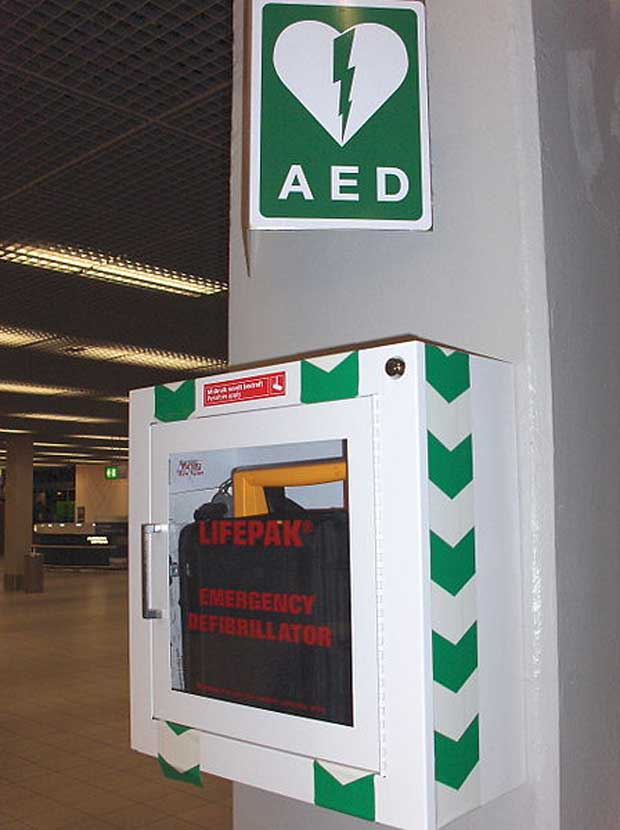By Kerrisa Wilson
Even though you may not see them, automated external defibrillators, which could save lives, are accessible around Humber.
Margaret Fung, Humber’s Manager of Health and Safety told Humber News there are about 15 defibrillators on the North and Lakeshore campuses that are placed in high risk areas.
“We do have a number particularly in areas where the risks are generally higher — for example in our athletic center where we have people going in and doing physical activity,” says Fung.

Photo Courtesy: Wikimedia Commons. Humber will be implementing close to 40 defibrillator’s over all campuses.
Fung says Humber is implementing a publicly accessed defibrillator program on all three campuses: North, Lakeshore and Orangeville.
“We’re in a middle of a program where we are going to be installing quite a large number of defibrillators ,” she said.
Fung said Humber has “about close to 40 that are going to be going into all our sites.”
Almost a year and a half ago, Manitoba passed the first ever legislation in Canada requiring that province to implement 1,000 AEDs in public spaces.
Jyl Mcgunigal, superintendent of Toronto’s Cardiac Safe City program said having AEDs in public accessible buildings is vital, although she said Ontario as a whole has no regulations for the life-saving devices.
“You should have your AED and your fire extinguisher, those are things that you need in your little tool box when you’re in big places,” she said.
“It’s the way to go,” says Mcgunigal.
Cardiac Safe City promotes public access defibrillator programs and Mcgunigal said having access to an AED can raise the chance of survival for a person in cardiac arrest to 75 percent.
“We have a standard when we place an AED at a building. We try to get an AED at a centralized location so that anywhere in the building it can be reached in three to four minutes,” says Mcgunigal.
As for more AEDs at Humber, Fung said the defibrillator program should be completed within the next month or two.
“Time is of the essence when someone has had a sudden cardiac arrest so we definitely need to have a program like this in place.”

